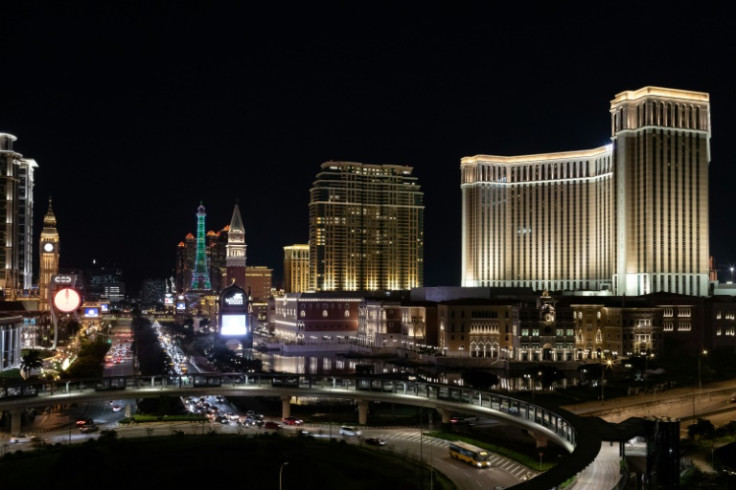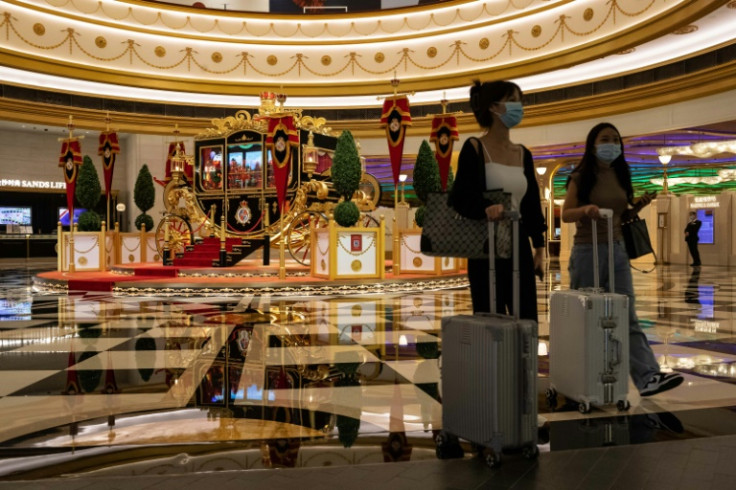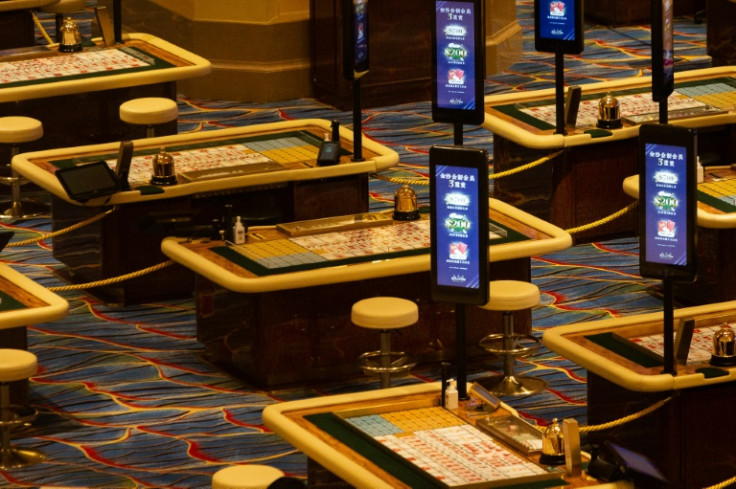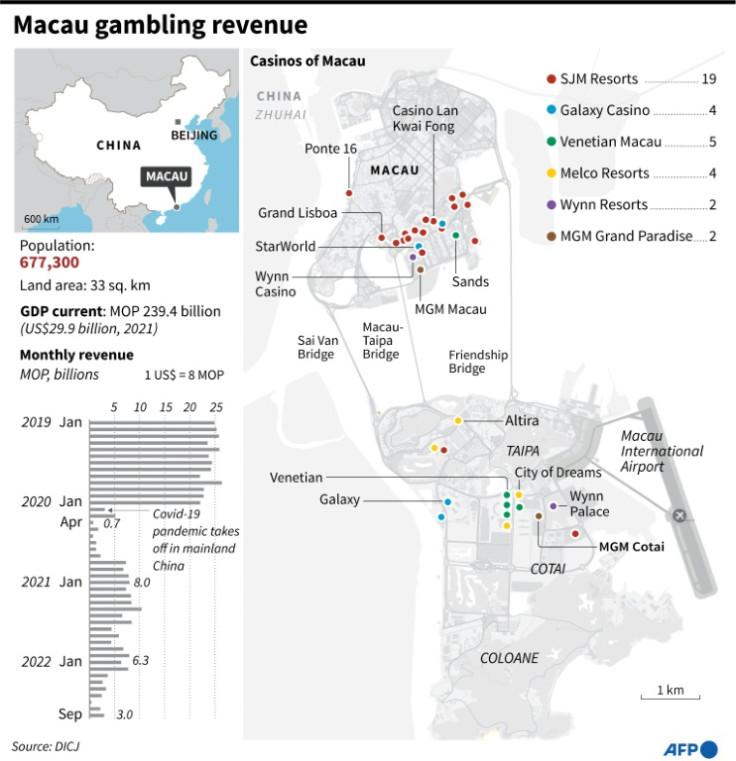Tough Odds For Macau As Casinos Pray For A Pandemic Shift

When Pinky Tam lost her job in Macau last year, she found herself among the many thousands cast adrift as the city's casino industry crumbled beneath the twin forces of politics and a pandemic.
The former Portuguese colony has been limping for nearly three years as coronavirus restrictions have kept away mainland Chinese tourists, depriving the gaming sector of its chief revenue source and tanking the wider economy.
"Back when things were good, it would be almost too crowded to walk," Tam, who used to work at the gambling operator Suncity Group, recalled of the narrow streets leading from the Ruin of St Paul's, Macau's most famous landmark.
"Now you can find maybe one or two locals passing through. I think the people of Macau are frustrated about the economy and future prospects," she told AFP.
The crisis comes at a sensitive time for Macau's oligopoly of casinos.
Officials are currently renegotiating the six concessions, which will expire by the end of the year.
It is an industry reshuffle that will shape Macau's next decade, raising questions over whether the city can return to being the world's top casino hub, whether it must seek an alternative path, and whether its golden years are over.
Since its handover to Chinese rule in 1999, Macau has been the only place in the country where casinos are legal, growing to the point two decades later where it was generating nearly six times the annual gaming revenue of Las Vegas.
It was a heady time of extraordinary growth and riches.
But even before the pandemic emerged, its wings were being clipped by President Xi Jinping's anti-corruption drive.
Then last November, authorities arrested Suncity boss Alvin Chau -- nicknamed the "Junket King" for his success in bringing in Chinese high-rollers -- and charged him with fraud, money laundering and running a crime syndicate.
It was the clearest sign yet of Beijing's crackdown on officials and wealthy tycoons who used Macau as a conduit to siphon cash out of China.
"Up until now, 90 percent of our visitors and 90 percent of our revenue comes from China... We basically are a hub to attract mainland Chinese gamblers," Macau-based gaming analyst Ben Lee told AFP.
"So the Macau government is obviously being pushed to try and redirect the industry away from China."
Until recently, the renewal of concessions seemed like a done deal for the six companies permitted to operate casinos, which include the subsidiaries of three Las Vegas giants -- Sands China, MGM China and Wynn Macau.
But at the last minute, a surprise contender, Malaysia's Genting Group, threw its hat into the ring.
With the concession renewal taking place at a time of spiralling tensions between Washington and Beijing, Lee posits that one of the US companies may well lose out.
"Why would (China) let the Americans keep 50 percent of the gaming industry in Macau," said Lee, founder of Macau gaming consultancy IGamiX.
"I cannot see any good reason."
Macau's government has long been keen to diversify away from gaming into tourism and leisure.
For the new concessions, it is demanding "much more non-gaming investment", Credit Suisse analysts wrote in a research note last week.
"An increase in investment commitment would inevitably put more stress into the already stretched balance sheet of certain operators, as well as lowering the long-term margin for the sector," it added.
For Macau's 680,000 residents, the cycle of lockdowns, testings and border closures have been some of the roughest years since the handover in a city where one in five people in the labour force works in gaming.
The biggest test came in July when much of the city, including casinos, was locked down to fight an outbreak of the Omicron coronavirus variant.
"It was an extreme situation for a relatively free and open city like Macau," former lawmaker Sulu Sou told AFP, adding that the economy emerged from the lockdown "on life support".
Tam, the former Suncity worker, said she took a one-third pay cut to land a new secretarial job, adding that similar openings were routinely advertised with a monthly wage of just $1,100.
Even if Chinese tourists return en masse under tentative plans to kickstart tour groups in November, Macau's gaming revenue this year will only be 15 percent of 2019 levels, while the following year will reach 35 percent, according to Credit Suisse estimates.
"In the last two to three years, Covid-19 has really put a spotlight on the need to diversify," said Glenn McCartney, an associate professor in integrated resort and tourism management at the University of Macau.
"(Diversification) won't happen overnight, it's a slow progression."



© Copyright AFP 2025. All rights reserved.





















